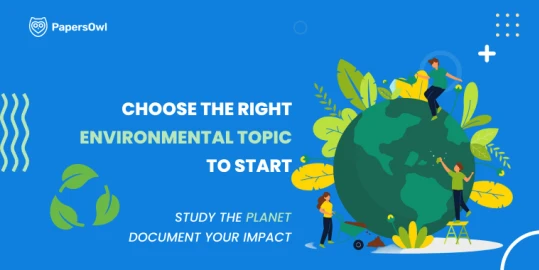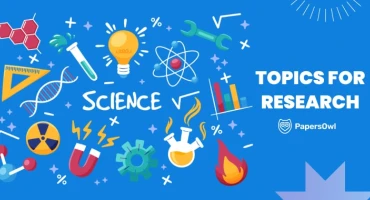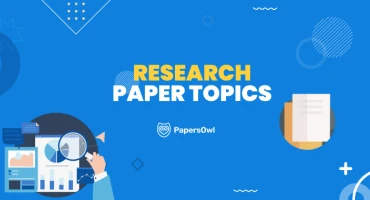Understanding environmental science topics, we know how the earth works and how our actions shape it. Track weather patterns or test local water systems. You uncover real-world issues and environment solutions that impact health and the natural world.
You don’t need a lab — just focus on the news. If you’re unsure where to begin, here’s a guide to sustainable environmental topics to explore that balance relevance with long-term impact.
Understanding Main Directions in Environmental Science
Some fields are hands-on — testing soil for pollution or tracing fossil fuels. Others use remote sensing to map sea level rise, climate shifts, or disappearing snowpack.
Ecology studies ecosystems, species, and shrinking natural habitats. If you map a wetland’s carbon storage or study the spread of oil spills, you’re asking the right questions.
Environmental chemistry tracks how substances move through air, ground, and water. It explains waste, toxins, and the process behind ocean acidification.
Policy-based research covers climate change, environmental justice, and the economic benefits of sustainable practices. For example, you might explore how environmental policies affect health or how one village handles rising flood risk.
Topics in Environmental Science for College Students
Choosing the right environmental science topic shapes how you approach the environment. If you need help sharpening your paper, you can pay for essays to get expert support.
Climate Change and Environmental Justice
Climate change alters every part of the Earth’s system, such as melting ice or heat trapped in the ocean. Your research topics on climate change might include tracking the release of methane from thawing ground or testing how one town adapts its roads to flooding.
- How melting subsoil releases ancient gases and disturbs nearby plant life
- Measuring road deformation in flood-prone suburbs after heatwaves
- Tracking seasonal changes in rainfall patterns over newly logged terrain
- The rise of nighttime heat and its effect on insect breeding cycles
- Methane leaks from old wells: a forgotten source of warming?
- Shifts in alpine snowfall patterns and their effect on rural irrigation
- Community response to rising wet-bulb temperatures in mining towns
- What tree ring data reveals about a century of temperature change
Renewable Energy
Solar power, water, and kinetic storage bring new perspectives to old issues. These topics let you test models or review policy costs. They all explore environmental problems and solutions that we can’t delay.
- Comparing rooftop solar performance across high-dust regions
- Is tidal power harming nearby oyster beds?
- Testing how solar pavement warms local air in dense cities
- Rooftop wind spinners: a viable alternative for low-rise schools?
- Can kinetic tiles power field stations in off-grid research zones?
- Environmental impact examples of buried cables on root systems
- Mapping glare interference from panels near airports
- How battery storage reshapes peak use in farming communities
Water Resources
Clean water shapes life and is linked to health, soil, and survival. Environmental impact examples range from waste treatment to underground leak tracing. A good project might track sea level rise near salt marshes or test filters in flood zones.
- Does saltwater seepage shift soil chemistry near estuaries?
- Measuring algae blooms in farm ponds during fertilizer peaks
- River depth recovery after nearby logging: how long does it take?
- Tracing heavy metals in fish downstream of industrial zones
- Testing how gravel filters work during spring flood events
- Map silent aqueduct failures in hillside villages.
- Satellite sensing of groundwater loss in shifting farmland belts
- Mapping freshwater pockets inside coastal marshlands
Land Use and Agriculture
Agriculture is more than farming — it’s where soil, zoning, and ecosystems meet. Projects might measure tree loss or track how grazing shifts biodiversity. These environmental examples go deep.
- Measure topsoil drift from tractor passes at different speeds.
- Track how hedge rows support insect pollination near monocultures.
- Examine tree ring gaps in re-zoned woodlots.
- Test slope erosion near new rural construction zones.
- Study nutrient runoff from greenhouses with artificial snowmelt.
- Compare pasture recovery in overgrazed vs. rotational fields.
- Monitor the environmental impact of herbicide drift in pollinator areas.
- Investigate abandoned plot rewilding and small animal return rates.
Pollution and Environmental Chemistry
Pollution hides in sound, color, or scent. You might test the air around train yards or trace oil spills in shipping lanes. These environmental issues examples reveal how humans shape the environment without noticing.
- Analyze diesel soot buildup on window ledges by traffic lights.
- Track lead levels in playground soils near old battery dumps.
- Monitor noise shifts across markets with and without truck access.
- Compare algae blooms before and after nearby landfill leaks.
- Test nitrate levels in roadside wells after snowmelt.
- Measure microwave tower hum in grazing zones.
- Observe tar patch melt patterns on aging roads.
- Track plastic beads spread from synthetic turf runoff.
Global Environmental Issues in 2026
Global temperatures have risen 1.29°C above pre-industrial levels (IPCC, 2026), with record heatwaves affecting over 2 billion people (Copernicus, 2026). Meanwhile, plastic waste topped 430 million tons, but just 9% is recycled (Earth.org, 2026).
Biodiversity is also in crisis. The Living Planet Index reports a 69% decline in wildlife populations since 1970. This year alone, we lost 3.5 million hectares of rainforest, accelerating habitat loss (Global Forest Watch, 2026).
These global environmental issues affect the earth, water, and air. The world’s most urgent environmental challenges now require sharper research. Here are some AP research topic ideas for those exploring these issues in depth.
This section shows what’s happening now and why it matters for future generations.
Plastic Waste Crisis
Plastic clogs rivers, soils, and the deep ocean floor. Its fragments show up in lungs, fish, and rainwater. These environmental problems examples demand precise and local research.
- Count the microplastic presence in honey collected near town parks.
- Study fiber fallout from public laundry vents into nearby creeks.
- Compare bottle shrinkage in sun-exposed vs. shaded dump areas.
- Measure plastic spread in flood debris piles.
- Track foam fragment movement across levees.
- Analyze mulch film residues in seasonal vegetable beds.
- Map snack wrapper patterns along rural roads.
- Study the microbial buildup on marine rope floats.
Biodiversity and Habitat Loss
When animals or plants vanish, so do their roles in the web of life. Disrupted ecosystems lead to crop failures and empty forests. These environmental science examples focus on what’s lost — and what’s left.
- Track frog call absence near recent mine clearings.
- Study nest timing changes after old fence removals.
- Compare pollinator paths in hedged vs. open crop areas.
- Map environmental science examples of migration blockages in canal zones.
- Analyze lichen decline on sun-exposed rock faces.
- Test rodent behavior in fragmented shrub patches.
- Study orchid bloom loss after wildfire scars.
- Track ants’ relocation after heavy path traffic.
Rising Temperatures and Heatwaves
Heat pushes beyond records. Cities bake. Rivers shrink. Climate change now unfolds in lived heat — not just graphs. These environmental topics call for close research.
- Monitor blacktop temperatures by paint color in parking lots.
- Study thermal relief in narrow alleys with vertical gardens.
- Track pet dehydration visits to clinics in July spikes.
- Measure soil baking in open lots near industrial sheds.
- Test nighttime cooling loss in houses with asphalt roofs.
- Observe student focus during indoor heatwaves.
- Analyze shadow cooling from transit shelters.
- Record egg spoilage in markets with metal stalls.
Mid-Level Research Topics
Mid-scale environmental research topics reveal patterns we can track, test, and act on. This is also where services like write my essay can help refine structure or source peer-reviewed material. The themes below bring science down to street level — where humans, animals, and systems collide.
Population and Urbanization
These kinds of environmental topics ask how space, power, and resources stretch — and break. You might compare town blueprints, study green roof results, or track global warming pressure in fast-growing zones.
- Study green roof stress during rapid storm runoff.
- Compare wind flow disruption across dense apartment blocks.
- Measure thermal buildup in courtyards sealed by tall housing.
- Observe trash accumulation in corner lots post-urban sprawl.
- Analyze sidewalk crack patterns and water seepage.
- Measure heat retention in high-density apartment blocks.
- Monitor light reflection off glass towers and plant burn.
- Test the footfall effect on slope paths during the market season.
Disease Ecology
Some illnesses begin with a broken ecosystem. Such research topics ask what happens when wild organisms lose ground and viruses jump borders. You might trace spillover routes or analyze humans in close contact with displaced animals.
- Track the spread of bird flu in regions of wetland loss.
- Study environmental issues from rat migration after flood events.
- Map mosquito bloom near tire dumps post-rain.
- Test fungal bloom in damp crop warehouses.
- Observe the fox den spread after forest thinning.
- Analyze zoonotic jump zones in cross-species habitats.
- Monitor parasite load in stray cats near urban sprawl edges.
- Compare pollen count spikes and asthma clinic visits.
Noise and Light Pollution
In these research topics, teachers might ask you to analyze airport zones, count bird collisions, or track how marine animals react to sonar pulses. You’ll uncover how unseen signals have visible costs.
- Measure bat activity near newly lit highways.
- Compare fish movement under different dock light colors.
- Track owl calls before and after firework events.
- Study moth wing burn in the overlit greenhouse perimeters.
- Test human sleep in cabins near wind farms.
- Map whale dive depth after sonar drills.
- Monitor dawn song shifts in urban gardens.
- Track glare effects on turtle hatchlings in resort zones.
Conservation Biology
Conservation is a science that plans ahead. These projects focus on protecting endangered species. Whether you monitor invasive species in shrinking ranges or model gene flow across fragmented land, the responsibility is shared.
- Rebuild amphibian pools in drained logging zones.
- Track turtle path returns after trail closures.
- Study fish fry survival in reed-restored streams.
- Model herd movement with new crossing corridors.
- Test re-seeding success in burned highland grasslands.
- Map seed dispersal by mammals in fenced areas.
- Monitor ecosystem recovery in reclaimed mining landscapes.
- Observe coral return on collapsed fisheries.
Educational Resources for Environmental Science Topics
These platforms help you address issues like fire management, natural resources depletion, or land loss — while sharpening your field practice and research skills.
Suggested Resources:
- IPCC Climate Reports: Global climate change data, environmental issue analyses, and future projections.
- NASA Earthdata: Satellite maps showing deforestation, fire zones, and water shifts. Essential for natural resources studies.
- UNEP Data Platform: Land use, drought models, pollution data — great for environmental engineering topics.
- Google Research Proposal Templates: Helpful for drafting structured research topics or project ideas.
- Open-Source GIS Tools: Useful for creating custom maps and modeling natural resource use at the local or country level.
- Environmental News Aggregators: Use Mongabay News, ScienceDaily Environment, or Earth.org News to track the latest environmental breakthroughs, policy changes, and case study updates. Staying current with environmental news helps you refine your topic, cite timely sources, and connect your findings to news worldwide.
Career-Driven Environmental Topics
Projects tied to environmental issues and suggestions give more than grades. Testing substances, or using GIS, builds skills that lead to real jobs in environmental science, engineering, and public policy. For example:
- GIS Mapping & Data Analytics: Used in careers monitoring natural resources, land use, or fire control zones.
- Environmental Policy Analysis: Research topics on climate law or sustainable farming contribute to careers in government or NGOs.
- Community Communication & Reporting: Presenting air quality or water safety research trains you for public outreach roles.
Ask teachers for ideas, explore issues in your country, and choose topics that match your interests and career direction.
Here are real research paper examples showing specific methods and contexts:
- Microplastic pollution impact on Missouri River ecosystems (Miller, 2022) — sediment sampling + chemical analysis.
- Drought resilience of native plants in rural Australia (Tanaka, 2021) — GIS mapping + soil moisture sensors.
- Green roofs and urban heat islands in Tokyo (Kobayashi, 2022) — thermal imaging + surface data analysis.
- Nitrogen runoff from soybean farms in Iowa (Chen, 2020) — water testing + hydrological modeling.
The best environment research topics spark action. You can map algae shifts, monitor runoff, or study crop pollen. Each connects back to current sustainability issues and real environmental questions.
It’s not just theory — it’s your practice. Use your interest to address a present need. Science moves when we care.






